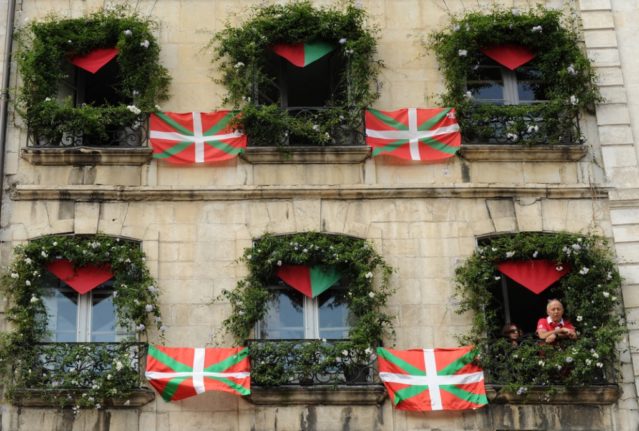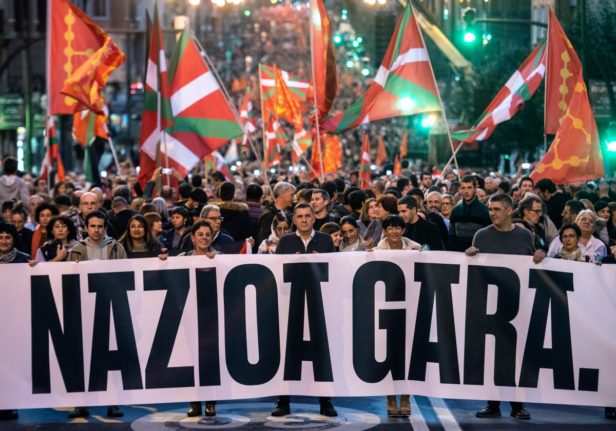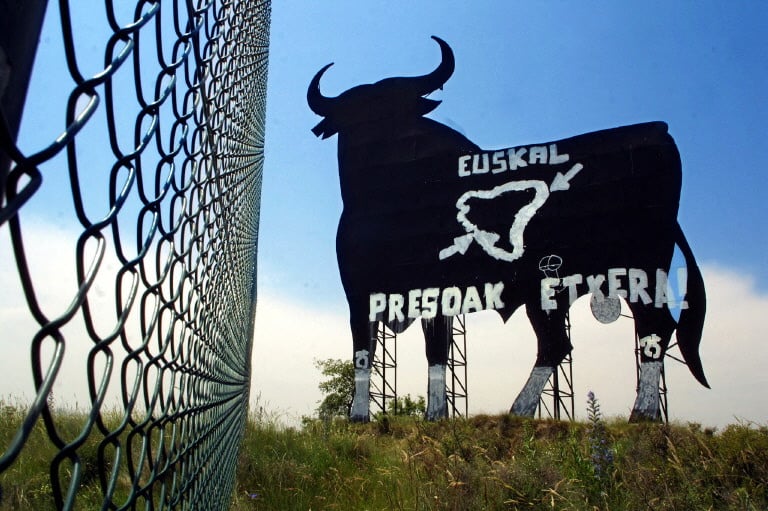One of the few surviving pre-Indo-European languages, Basque is among the oldest in Europe and has been continuously spoken in the Basque Country – in northern Spain and southwest France – for thousands of years.
Little is known of its origins, only that it predates the Romance languages of its neighbours and has no known links to any other modern languages.
Public use of Basque was frowned upon under the dictatorship of Francisco Franco (1939-75) but measures were taken in the 1980s to strengthen the language and nowadays it is the co-official language of the autonomous community of the Basque Country, along with Spanish.
According to Etxepare Basque Institute, there are around 900,000 Euskera speakers in the Spanish and French Basque country as well as Navarre. Not everyone is fluent, but you’ll see Basque words on road signs, restaurant menus and billboards.
As is often the case with languages, Basques is a symbol of identity and pride, which means that learning a handful of commonly used words can win you friends and respect among locals.
The mingle of k’s and z’s can seem more than a little bit confusing for people unfamiliar with the language (also for Spaniards), so we’ve put together a handy guide to some of the most unique words in Basque that you can try out next time you are visiting the Basque Country.
Euskara – Basque
Let’s start with the obvious: euskara (also written euskera) is the Basque word for the Basque language. Euskara is spoken by around 30 percent of people in the Spanish Basque Country and around 22 percent of people who live in the French Basque Country.
The Basque Country is called Euskadi in Basque, or Euskal Herria, although the latter is often used to refer to the whole of the old Vasconia territory, which encompasses the Basque-speaking territory on both sides of the Pyrenees.
Agur – Bye
Even non-Basque speakers in the Basque country favour agur over the Spanish adiós as it’s by far the most common way to say goodbye to someone. It can be used to mean hello as well, but it’s usually a greeting that comes at the end of a meeting. Believe it or not, agur actually has Latin roots and derives from the word augurium, omen.
Kaixo – hello (pronounced kysho)
There’s no goodbye without first hello, and in Basque the word is kaixo, although many favour the more colloquial aupa (hi), epa, or even aupa hi (Hey you). For a more formal ”good morning, ‘good afternoon’ or ‘good evening’, the Basques have the same word regardless of the time of day: egun on; and if you want to say ‘good night’ you can say gabon.
Eskerrik asco – Thank you
Perhaps the most important words to learn in Euskera. If someone is thanking you, the easiest way to respond is by saying zuri, which is a bit like saying ‘you’re welcome’ or ‘no, thank you’.
Zorionak – Congratulations
Need to send a birthday message to a Basque friend? Want to congratulate an Athletic Bilbao fan on their win? Zorionak is another of those words that will go down very well.
Xirimiri – a very light rain (pronounced shirimiri)
Spain might have the reputation for being sunny all year round, but the lush Basque Country sees its fair share of rain, which is why Basque has its own word, xirimiri, which means a very light rain. In fact, Spaniards across the country use chirimiri to refer to this kind of drizzle, as there is no perfect Spanish equivalent.
Zurito – a tiny beer
The Basque Country, and particularly the city of San Sebastián (Donostia in Basque) is renowned for its delicious bites of tapas, known as pintxos. To go with the little morsels of food, the Basques have a beer even smaller than the Spanish caña (small beer), which is called a zurito – so remember to order one next time you’re in a bar in the Basque Country. Another handy word to know is katxi (pronounced cachi), which means glass but refers to the big plastic cups that often contain kalimotxo (Coke and wine), a common drink among young Basques.
Txotx – toothpick (pronounced chotch)
While this word literally means toothpick, it is also said when you tip the cider out of the barrel to announce to everyone that the barrel is open and they should fill their glasses. Cider is a popular drink in the Basque Country, where people pour it into a glass from a great height to give the drink more fizz.
Traditional cider houses are called sagardotegi in Basque and serve cider as well as Basque cuisine including cod fritters.
Erdera – any language other than Basque
Basques hold their own unique language in incredibly high esteem. So much so, in fact, that they use the word erdera to refer to any language that is not Basque.
Txoko – a gastronomic society (pronounced cho-ko)
This typically Basque gastronomic society is usually private – by invitation only – where Basques get together to cook, experiment with their cuisine and socialize. They first started in San Sebastián in around 1870, then spread throughout the Basque Country. Traditionally, the txoko are only open to male members, but the more modern societies have begun to allow women to join too.
During the dictatorship of Francisco Franco, txoko were a popular place to meet legally, free of state control and speak Basque – which was frowned upon – and sing Basque songs.
The word txoko literally means nook or cosy corner in Basque.
Aizkolaritza – wood chopping
Basques are incredibly proud of their unique sports, including wood chopping competitions, which are held all over the region. It is a popular kind of herri kirol (rural sport) usually held during local festivals. Other popular rural sports include trontzalaritza (log sawing), sokatira (tug of war) and harri-jasotzea (stone lifting).
Txapela – beret (pronounced chapela)
Also known as a boina, a beret is a staple of any traditional Basque wardrobe. The traditional outfit, worn during festivals, includes white trousers and T-shirt, a red neckerchief and red beret.
Txakoli – Basque sparkling wine (pronounced chakoli)
This fresh white wine is a popular accompaniment to pintxos and is poured from a height, the bottle above the barman’s head, to add bubbles to the wine when it hits the glass, held in his other hand.
Baserri – traditional Basque farmhouse
A baserri is a half-timbered or stone house traditional in the Basque Country. Typically used as farmhouses, they can be spotted dotting the landscape and have been at the core of Basque society for hundreds of years.
Traditionally, the household is administered by the etxekoandre (lady of the house) and the etxekojaun (master of the house) who then pass on the baserri to one of their children – they can choose any child, male or female.
Most baserri have a stone carved sign built into the wall (armarriak) and a lintel stone above the doorway stating who built the house and the year in which it was built.




 Please whitelist us to continue reading.
Please whitelist us to continue reading.
Member comments